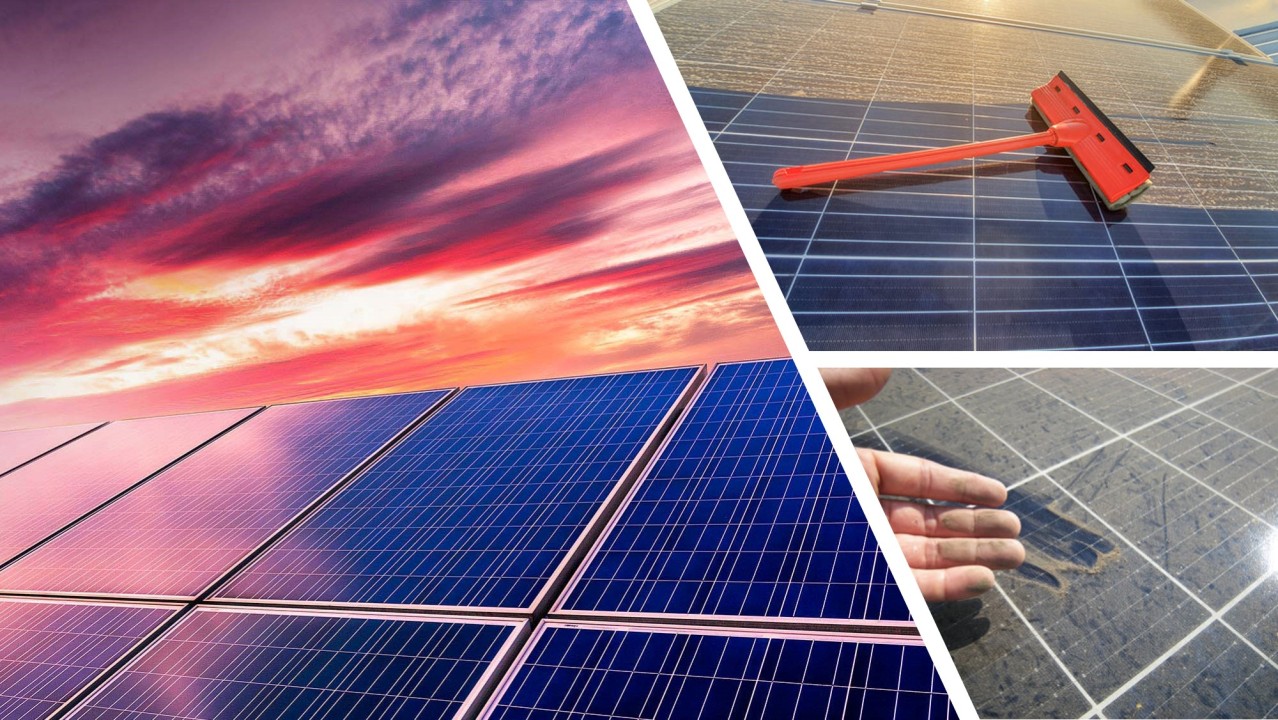Introduction:
Harnessing the power of solar energy is a sustainable choice, but it’s crucial to maintain the efficiency of your solar panels. Explore the essential tips for solar panel cleaning to ensure optimal performance and a prolonged lifespan for your solar investment.
The Impact of Dirt and Debris:
Solar panels are exposed to various environmental elements, accumulating dirt, dust, and debris over time. This buildup can hinder sunlight absorption and compromise the efficiency of the panels. Regular cleaning is essential to prevent a decrease in energy production and maintain the effectiveness of your solar power system.
Frequency of Cleaning:
The frequency of solar panel cleaning depends on your location and the environmental conditions. In areas with heavy pollution, dust, or frequent bird droppings, more frequent cleaning may be necessary. Generally, a biannual cleaning schedule is recommended for optimal performance. However, regular visual inspections can help you determine if cleaning is required sooner.
Cleaning Techniques:
When cleaning solar panels, it’s crucial to use gentle techniques to avoid damage. Begin by rinsing the panels with water to remove loose dirt. For more stubborn dirt or bird droppings, a mild soapy water solution and a soft sponge or brush can be used. Avoid abrasive materials that could scratch the surface of the panels.
Timing Matters:
The timing of solar panel cleaning is essential for efficiency. The best time to clean solar panels is early in the morning or late in the afternoon when the panels are cool. Cleaning panels under direct sunlight can lead to rapid drying, leaving soap residue that may affect performance. Choose a time when the panels are not producing electricity to ensure safety.
Safety Precautions:
When engaging in solar panel cleaning, safety should be a top priority. If the panels are installed on the roof, use appropriate safety gear such as a harness and non-slip shoes. Be cautious not to damage the panels or the roof during the cleaning process. If reaching the panels is challenging, consider hiring professionals for safe and thorough cleaning.
Use of Distilled Water:
To prevent mineral deposits on the solar panels, consider using distilled water for cleaning. Tap water may contain minerals that can leave residues on the panels after drying. Distilled water ensures a clean and streak-free surface, contributing to optimal sunlight absorption and energy production.
Regular Inspections for Damage:
Solar panel cleaning offers an excellent opportunity to conduct regular inspections for any signs of damage or issues. Check for cracks, hotspots, or other abnormalities in the panels. Early detection allows for timely repairs, preventing further damage and ensuring the longevity of your solar power system.
Consideration for Shade and Trees:
While regular cleaning is crucial, consider addressing factors contributing to dirt and debris accumulation. Trim any overhanging branches or foliage that may cast shade on the panels or drop leaves. By minimizing shading and debris sources, you reduce the frequency of cleaning and maintain consistent energy production.
Professional Cleaning Services:
For homeowners who prefer a hands-off approach, professional solar panel cleaning services are available. These services use specialized equipment and techniques to ensure thorough and safe cleaning. Professional cleaners have the expertise to identify and address potential issues, providing a hassle-free solution for maintaining optimal solar efficiency.
Conclusion:
In conclusion, regular solar panel cleaning is a fundamental aspect of solar system maintenance. By adopting appropriate cleaning techniques, prioritizing safety, and addressing potential issues promptly, you ensure that your solar panels operate at peak efficiency. This commitment to upkeep contributes to a sustainable and cost-effective renewable energy source for your home.
For more in-depth insights into Solar Panel Cleaning, visit PlayAsSustentable.com.




